Martin Heidegger
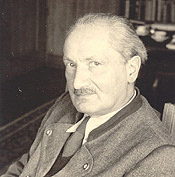
Born in 1889, Martin Heidegger is the most influential philosopher of the twentieth century. After an apprenticeship with Edmund Husserl, Heidegger in 1927 published his magnum opus, Being and Time. This work set out to retrieve the 'question of being,' forgotten since before the time of Plato. It was a profound exploration of the essence of humanity. In 1933 Heidegger embraced the National Socialist 'revolution,' becoming rector of Freiburg University. His 'rectorate address,' culminating in 'Heil Hitler!,' is the most infamous stain in the history of philosophy. Heidegger resigned the rectorate in 1934. He continued to lecture, turning more and more to close examination of ancient Greek texts, and to the 'poet of poets,' Friedrich Hölderlin. Heidegger was banned from teaching by the occupying forces after the war because of his Nazi affiliation. One preoccupation of his later writings is the meaning of modern technology, and at one point he controversially stated that mass exterminations are in
essence the same as modern agriculture. He died in 1976.
Friedrich Hölderlin
Born in 1770, Friedrich Hölderlin has come to be regarded as one of the greatest poets in the German language. He was a friend of Hegel and Schelling, and his poetry reflects a preoccupation with philosophical themes, as well as a profound consideration of the meaning of ancient Greek culture, and its significance in modern times. Hölderlin was not heralded in his lifetime, and he was consequently forced to work as a tutor in bourgeois households. His mental condition deteriorated at the beginning of the nineteenth century, although he continued to write poetry, and completed translations of two of Sophocles' tragedies, Antigone and Oedipus Tyrannus. The unfinished Ister hymn was written around 1803. When his health continued to suffer, and after a period of institutionalisation, Hölderlin moved into the home of a carpenter in Tübingen, where he lived from 1807 until his death in 1843.
The 1942 Lecture Course: Hölderlin's Hymn 'The Ister'
1942 was the year the National Socialists settled on the 'final solution.' In that same year Heidegger delivered a lecture course on a poem by Friedrich Hölderlin about the Danube river entitled 'The Ister.' The course explored the meaning of poetry, the nature of technology, the relationship between ancient Greece and modern Germany, the essence of politics and human dwelling. The middle part of the lecture course is a reading of Sophocles' Antigone, which Heidegger undertakes because of the importance of this text for grasping the meaning of Hölderlin's poetry. The 1942 lecture course contains Heidegger's most sustained discussion of the essence of politics. Heidegger was only able to deliver two-thirds of the written text of the lecture course. It was published as part of his collected works in 1984.
Bernard Stiegler
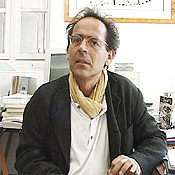
Born in France in 1952, Bernard Stiegler spent five years in prison for armed robbery. During this period of enforced isolation, he became a philosopher. He was released in 1983. In 1994 he published the first volume of his magnum opus, La technique et le temps (Technics and Time). The work was an examination of the essence of humanity in its relation to the essence of technology. On the one hand, Stiegler is engaged in an argument about archaeology and the history of technology. On the other hand, he is engaged in an argument with Heidegger about the nature of the human, the nature of memory, and the meaning of mortality. Although profoundly indebted to Heidegger, Stiegler argues that Heidegger cannot grasp the way in which man is originally and profoundly technical life, for whom all access to the past and all knowledge of death springs from a relation to technical prostheses.
Jean-Luc Nancy
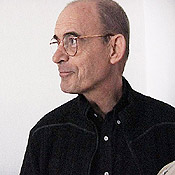
Born in 1940, Jean-Luc Nancy has published on a vast variety of themes from philosophy, literature and art. In the 1970s he was a frequent collaborator with Philippe Lacoue-Labarthe, and in 1980 they jointly opened the 'Centre for Philosophical Research on the Political' in Paris, the goal of which was to encourage philosophical work on the essence of politics. Nancy, a close associate of the late Jacques Derrida, has been the subject of a recent book by him. Nancy has continued to publish works that try to push 'deconstruction' toward a new foundation for political thought. In this project, he has been concerned with themes such as community and the possibility of founding politics on something other than identity. The work of Heidegger has been of great importance for Nancy's work, both positively and as what must be overcome.
Philippe Lacoue-Labarthe
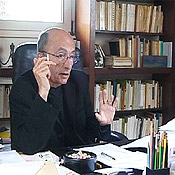
Born in 1940, Philippe Lacoue-Labarthe is another close associate of the late Jacques Derrida. He was a collaborator with Jean-Luc Nancy, the two having written books together and jointly opening the 'Centre for Philosophical Research on the Political' at the Ecole Normale Supérieure. In 1987 Lacoue-Labarthe published La fiction du politique (Heidegger, Art and Politics), containing the results of his passionate wrestling with the of 'Heidegger's politics.' It is considered by many to be the most thoughtful and the most innovative work on the theme of Heidegger and Nazism. Lacoue-Labarthe turns back to Hölderlin in this work, in an attempt to find new terms with which to grasp the meaning of the extermination of the Jews. Lacoue-Labarthe has also published French translations of Hölderlin's translations of Sophocles, and has staged theatrical productions of these works.
Hans-Jürgen Syberberg
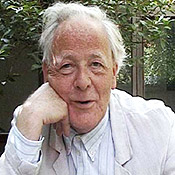
Hans-Jürgen Syberberg was born in Pomerania in 1935. After the collapse of the Nazi regime he found himself in East Germany. He began making films as a teenager, and at the age of 17 he filmed rehearsals of Bertolt Brecht's Berliner Ensemble theatre company with an 8-millimetre camera in East Berlin. He migrated to West Germany in 1953, and has thus experienced life under Nazism, Stalinism and capitalism. Syberberg's greatest cinematic work is a 7-hour epic that appeared in 1977 under the title Hitler: A Film From Germany. An impossible mixture of Wagnerian mythology and Brechtian alienation, the film tries to enter into the Hitler phenomenon in order to grasp it from the inside. It was not well received in Germany, where it was controversial, but garnered praise overseas, especially from critics such as Susan Sontag. Suspicion of Syberberg's politics was inflamed when in the wake of reunification he published a book critical of modern Germany. Lacoue-Labarthe, who had cited the Hitler film
favourably in La fiction du politique, was among those who subsequently found Syberberg's politics unacceptable. Syberberg continues with various artistic projects, including a stage production of Hölderlin poems in 1993 in Berlin.
